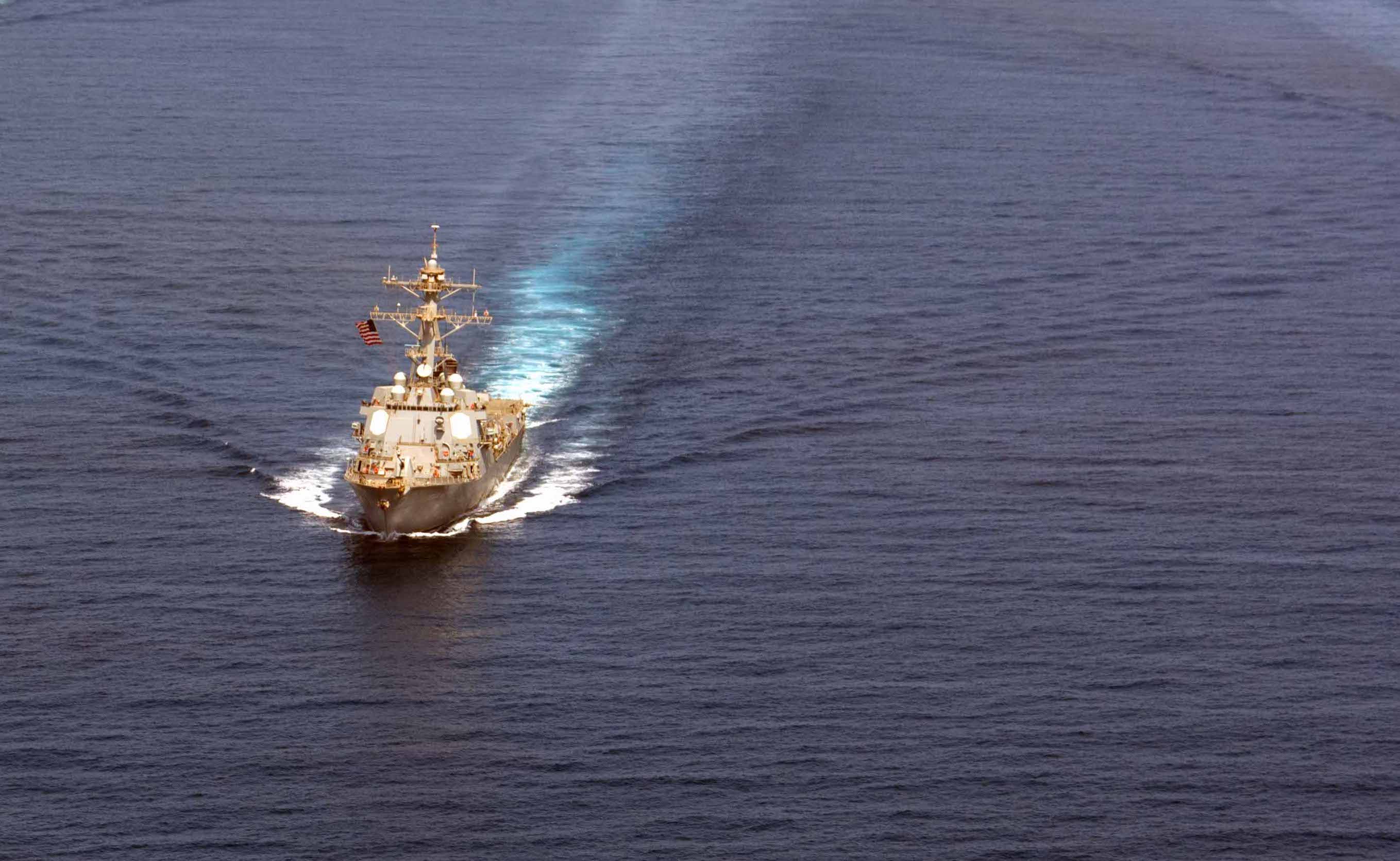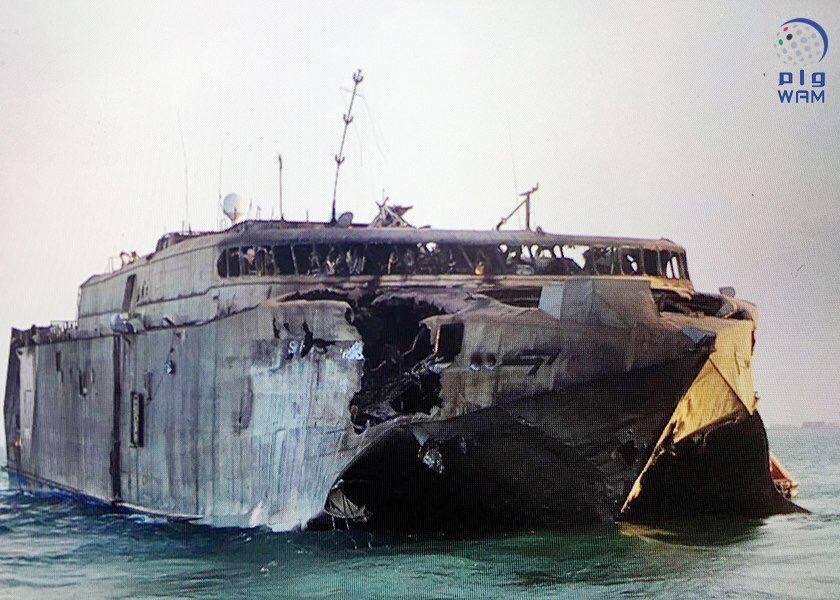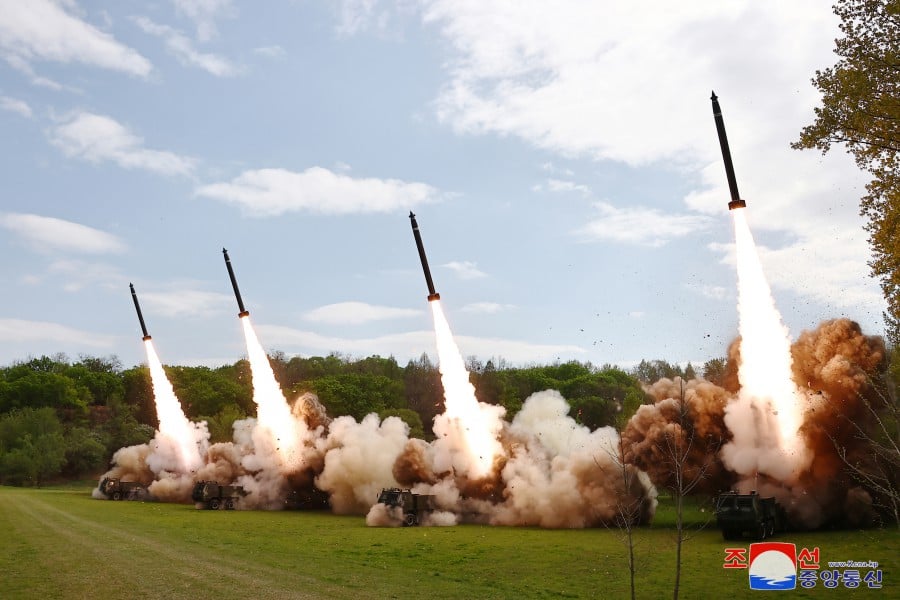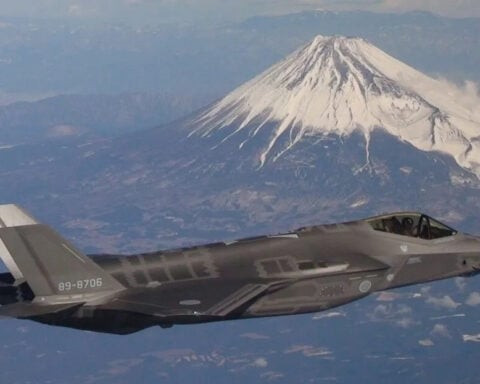
This post has been updated with an additional statement from Chief of Naval Operations Adm. John Richardson.
Houthi rebels fired two more cruise missiles at the guided-missile destroyer USS Mason (DDG-87) on Wednesday and Pentagon officials are pledging a response, DoD spokesman Peter Cook said in a Wednesday statement.
“For the second time in four days, USS Mason responded to an incoming missile threat while conducting routine operations in international waters off the Red Sea coast of Yemen,” Cook said.
“Those who threaten our forces should know that U.S. commanders retain the right to defend their ships, and we will respond to this threat at the appropriate time and in the appropriate manner.”
Mason was operating in the strait of Bab el-Mandeb when two costal defense missiles were launched at the ship from the vicinity of southern city of Al Hudaydah at around 1800 local time (1100 EST), according to information from defense officials provided to USNI News.
The missile attack did not result in any damage to the ship or injuries to the crew, Cook said.
Mason used unspecified countermeasures following the launch of the cruise missiles. However, it’s unclear whether the missiles missed their target and hit the water because of actions by the ship’s crew or if the missiles failed on their own.
“USS Mason fired defensive salvos in response to at least one missile which did not hit the ship or caused any damage,” read a report from newswire Reuters.
“Indications are that the second salvo brought down an incoming missile, one U.S. official said, speaking on condition of anonymity.”
Chief of Naval Operations Adm. John Richardson praised the actions of the crew in a statement provided to USNI News on Wednesday.
“The team on USS Mason demonstrated initiative and toughness as they defended themselves and others against these unfounded attacks over the weekend and again today. All Americans should be proud of them.” he said.
“These unjustified attacks are serious, but they will not deter us from our mission. We are trained and ready to defend ourselves and to respond quickly and decisively.”
The latest incident follows a separate attack on Sunday in which Mason had to defend itself from two missiles—believed to be Chinese-built C-802s (NATO reporting name CSS-N-8 Saccade) and provided to the Houthi rebels by Iran.
During Sunday’s attack the ship fired two SM-2s and an Evolved Seasparrow Missile (ESSM) to intercept the missiles launched from southern Yemen, USNI News reported on Tuesday. It’s not clear if Mason fired additional interceptors to counter the missiles from Yemen in Wednesday’s attack.
While the C-802s—based on the French Exocet anti-ship missile—are likely more than a decade old, they feature a powerful warhead capable of severely damaging the most sophisticated warship. A single air-launched Exocet sank the Royal Navy frigate HMS Sheffield during the Falklands War in 1982.
The havoc the warhead can inflict is evident in the damage on the UAE- operated HSV Swift, which earlier was attacked by what is likely a C-802 launched by Houthi rebels

Combined with the Sunday attack, Wednesday’s incident is evidence of how easily weapons having the power to sink a $2 billion U.S. warship have fallen into the hands of non-state actors, Eric Wertheim—naval analyst and author of U.S. Naval Institute’s Combat Fleets of the World—told USNI News on Wednesday.
“It shows how easily these missiles can get into the hands of anyone who wants them and that our ships have to be ready,” he said. “It highlights the danger to shipping from even the most disorganized groups.”
Until now, the most recent attack against a warship with a guided missile from a non-state actor was the 2006 strike on the Israeli corvette INS Hanit by an Iranian-made C-802 variant by Hezbollah.
“It wouldn’t surprise me if we see more of this,” Wertheim said.
Last week, the United States sent three warships—Mason, USS Nitze (DDG-94) and the afloat forward staging base USS Ponce (AFSB(I)-15)—as part of a presence mission off the southern coast of Yemen following the destruction of Swift.
The presence of the U.S. ships is in part to reassure commercial traffic that transits the strait that connects the Red Sea to the Indian Ocean—one of the busiest maritime traffic zones in the world.
The attacks come as the U.S. is evaluating its support for the Saudi-led coaltion that has been fighting the Iran-backed Houthis since last year. A coalition bombing of a funeral that killed 140 and injured more than 500 came ahead of the first attack against Mason.
The following is the complete Oct. 12 statements from DoD spokesman Peter Cook and CNO Adm. John Richardson.
Statement by Pentagon Press Secretary Peter Cook on USS Mason
For the second time in four days, USS Mason responded to an incoming missile threat while conducting routine operations in international waters off the Red Sea coast of Yemen. At about 6 p.m. local time today (11 a.m. EDT), the ship detected at least one missile that we assess originated from Houthi-controlled territory near Al Hudaydah, Yemen. The ship employed defensive countermeasures, and the missile did not reach USS Mason. There was no damage to the ship or its crew. USS Mason will continue its operations. Those who threaten our forces should know that U.S. commanders retain the right to defend their ships, and we will respond to this threat at the appropriate time and in the appropriate manner.
Statement from Chief of Naval Operations Admiral John Richardson:
“The US Navy remains on watch in the Red Sea and around the world to defend America from attack and to protect U.S. strategic interests. These unjustified attacks are serious, but they will not deter us from our mission. We are trained and ready to defend ourselves and to respond quickly and decisively.
The team on USS Mason demonstrated initiative and toughness as they defended themselves and others against these unfounded attacks over the weekend and again today. All Americans should be proud of them.”





